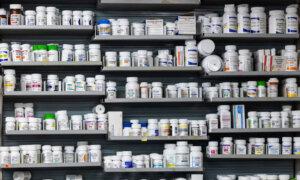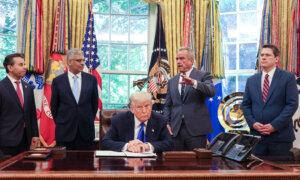The Most-Favored-Nation (MFN) pricing model aims to align the cost of brand-name drugs in the U.S. with the lowest prices offered in other wealthy nations.
Trump’s May 12 order directed HHS to stop what he called “foreign freeriding” and to ensure that Americans no longer pay disproportionately high prices for the same medications.
The Most-Favored-Nation (MFN) pricing model aims to align the cost of brand-name drugs in the United States with the lowest prices offered in other wealthy nations that have similar economic profiles.
“For too long, Americans have been forced to pay exorbitant prices for the same drugs that are sold overseas for far less,” HHS Secretary Robert F. Kennedy Jr. said in a statement. “That ends today. We expect pharmaceutical manufacturers to fulfill their commitment to lower prices for American patients, or we will take action to ensure they do.”
CMS Administrator Dr. Mehmet Oz said the agency is targeting all brand-name drugs that lack generic or biosimilar competition. For each of those medications, manufacturers will be expected to match the lowest price found in any country in the Organisation for Economic Co-operation and Development (OECD) with a GDP per capita of at least 60 percent of that of the United States.
Those countries include major economies such as Germany, France, and Japan. In some cases, U.S. patients pay three to five times more than their counterparts abroad, according to HHS.
The May 12 order revives and expands the earlier effort, this time including both Medicare and Medicaid. It also directs the secretary of HHS to propose rules that would enforce MFN pricing if drugmakers fail to comply, and to allow Americans to purchase drugs directly at the lowest global price.
The executive order also instructed the U.S. trade representative and the commerce secretary to investigate pricing practices abroad that may harm American consumers.
Trump, Kennedy, and Oz have said the initiative is a continuation of efforts launched during Trump’s initial term in office.
“In case after case, our citizens pay massively higher prices than other nations pay for the same exact pill, from the same factory, effectively subsidizing socialism abroad with skyrocketing prices at home,” Trump said.
Lawmakers on both sides of the aisle have recently expressed interest in similar approaches. Earlier this month, Sens. Josh Hawley (R-Mo.) and Peter Welch (D-Vt.) introduced legislation to cap U.S. drug prices at the average paid in six peer countries. The bill would fine companies 10 times the price difference for each unit sold above that benchmark.
The policy has drawn criticism from pharmaceutical industry groups, who warn that it could hurt innovation and limit access to new treatments. The Pharmaceutical Research and Manufacturers of America (PhRMA) stated that importing foreign prices could discourage investment in drug development and limit patient access to new treatments.
The administration has not yet named specific drugs or companies that will be affected, but the health agencies said further commitments from pharmaceutical makers to lower prices in the United States will be released in the coming weeks.
Original News Source Link – Epoch Times
Running For Office? Conservative Campaign Consulting – Election Day Strategies!


